Alphabet Recognition Normal Letter Recognition Worksheets for Ages 4-6 - Page 2
30 filtered results
-
From - To
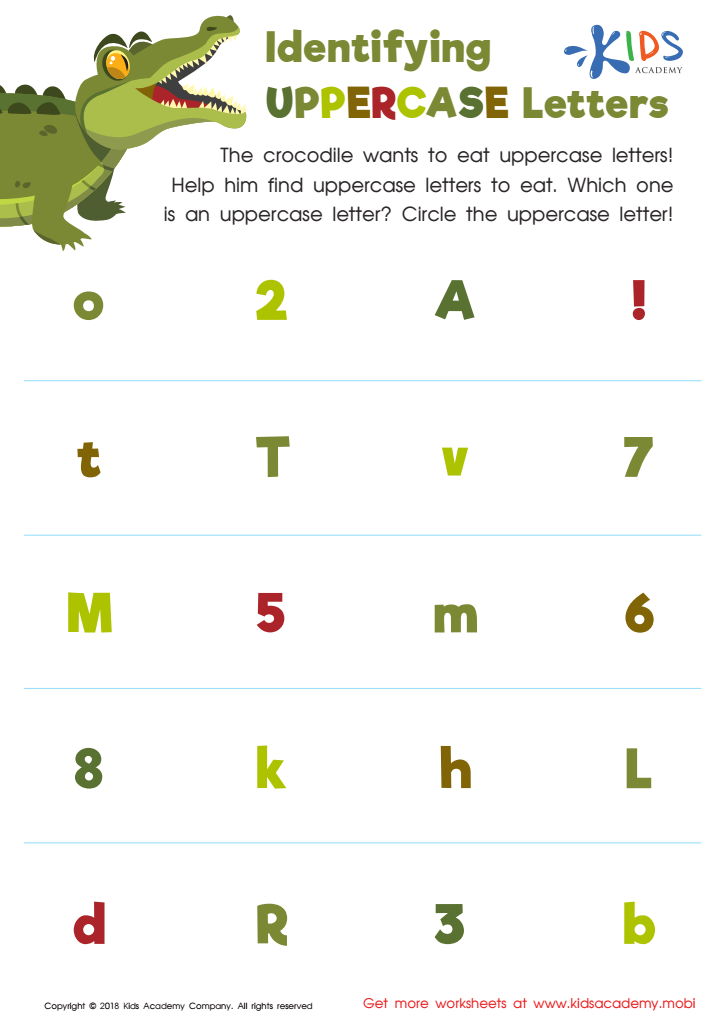

Identifying Uppercase Letters Worksheet
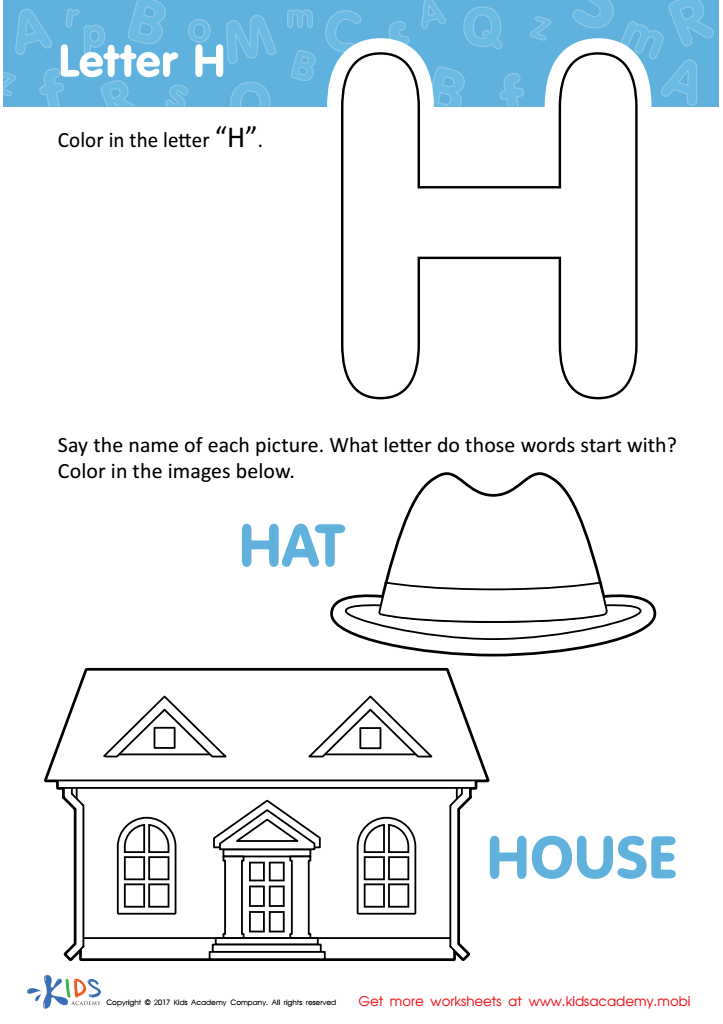

Letter H Coloring Sheet
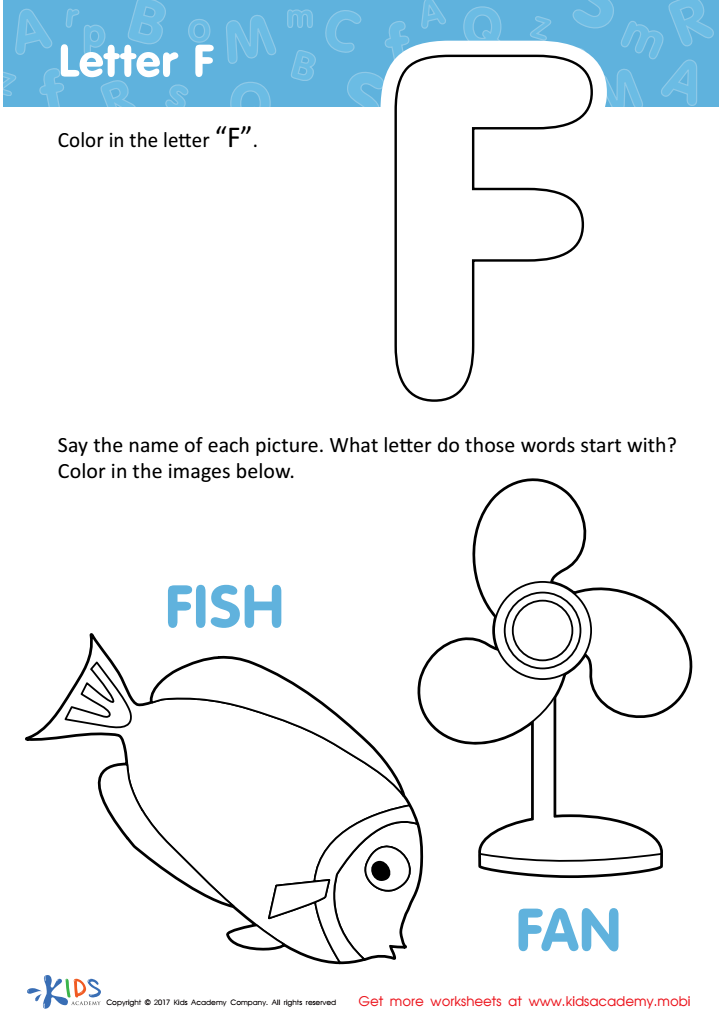

Letter F Coloring Sheet
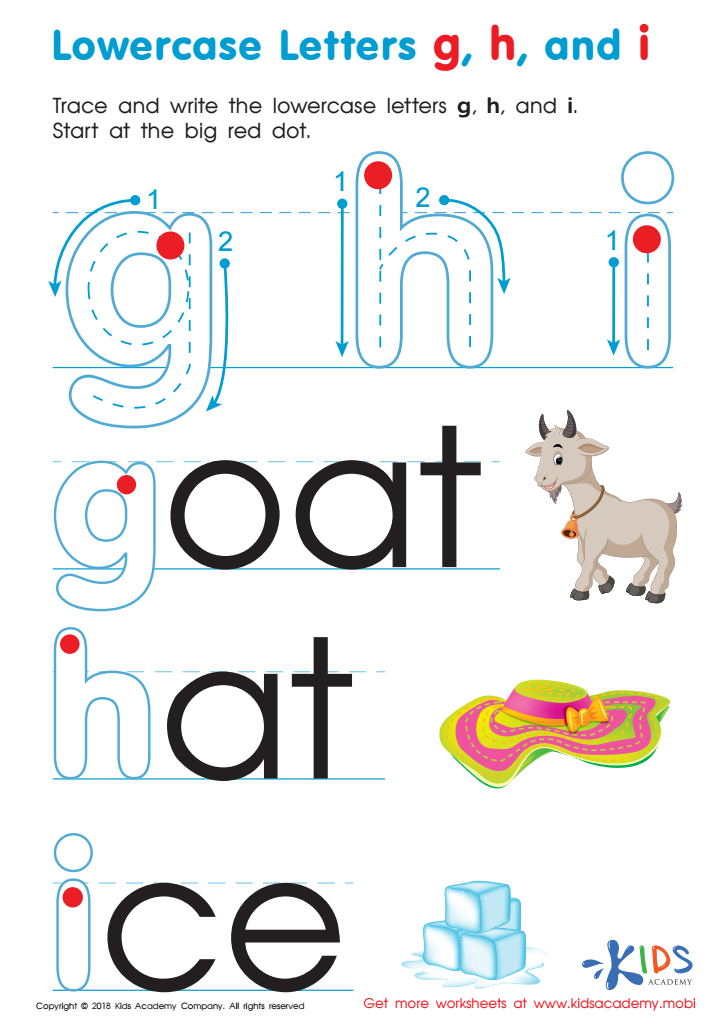

Lowercase Letters g h i Worksheet
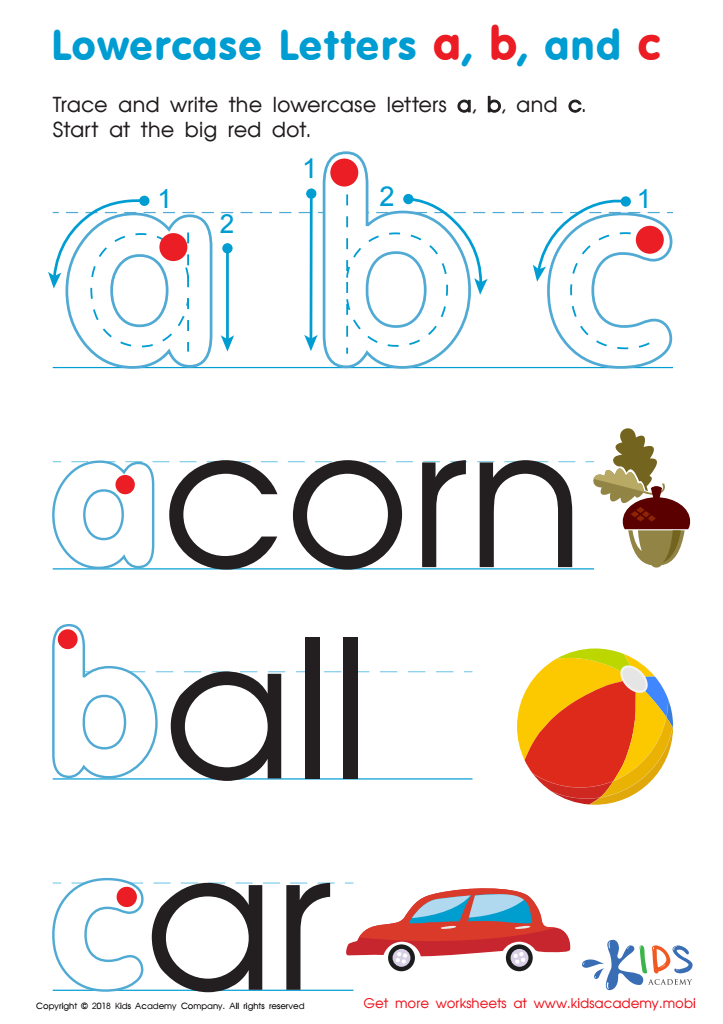

Lowercase Letters a b c Worksheet
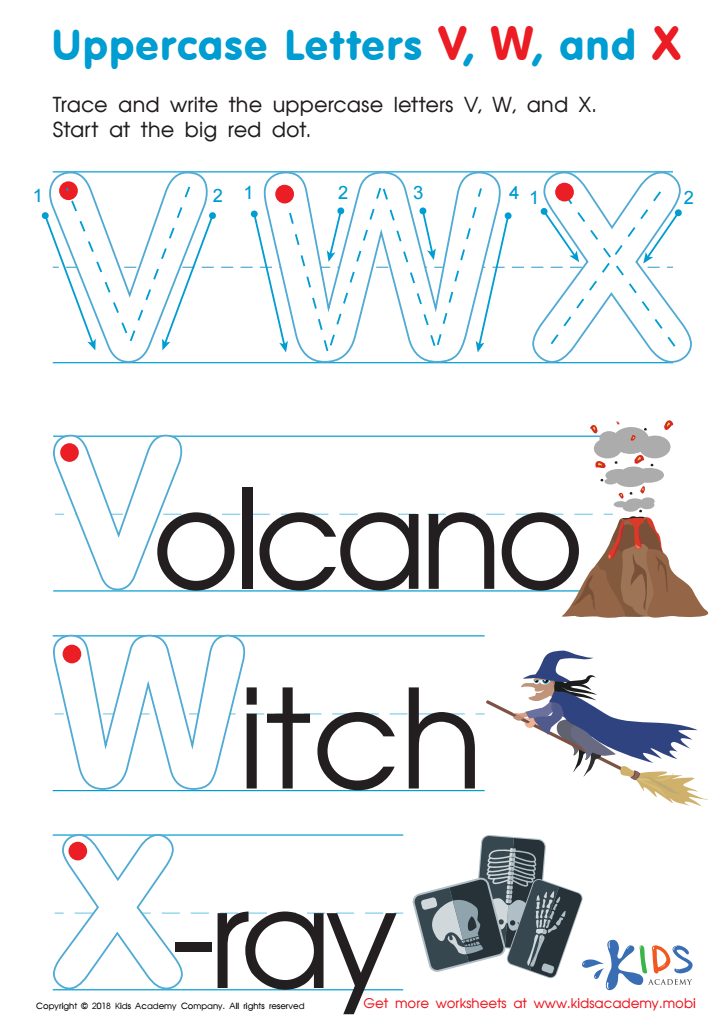

Uppercase Letters V, W, and X Worksheet
Alphabet recognition and letter recognition are foundational skills that significantly impact a child's literacy development, particularly for children aged 4-6. At this stage, children are beginning to interact with written language, making it crucial for parents and teachers to prioritize these skills.
First, knowing the alphabet shapes a child's ability to recognize letters in various contexts, from reading books to viewing signs. This recognition is crucial for developing phonemic awareness, the ability to hear, identify, and manipulate sounds, which later supports reading and writing skills.
Additionally, letter recognition fosters early reading skills; children who can identify letters are better equipped to decode words, enhancing their comprehension and building their confidence as readers. Beyond academics, these skills bolster cognitive development, encouraging children to make connections between symbols and sounds.
Moreover, engaging with letter recognition can be a fun and interactive experience through games and activities, nurturing a love for literacy from an early age. Ultimately, fostering alphabet and letter recognition prepares children for future educational success and instills a lifelong appreciation for reading, making this an essential focus for parents and educators alike.
 Assign to My Students
Assign to My Students




















